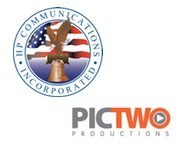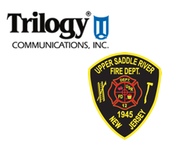Our Accomplishments
As a new foundation, we have already raised considerable money from the kind support of generous corporations, individual donors across the country and from the Upper Saddle River, NJ, Walkathon. The funds are being used for cancer research as well as little things that make the life of a kid with cancer ever more tolerable.
As more money becomes available, we will be able to fund more clinical studies in MSKCC as well as other major hospitals across the country. Funding drug trials and other research by Charitable Foundations like ours is critically important, as the major drug companies are extremely reluctant to spend money on childhood cancer drug development. Lack of research fund is directly related to higher mortality rate in childhood cancer patients. We need your help in reversing this!
So far, the money raised by our Foundation has been donated to fund the following clinical trial program in Memorial Sloan Kettering Cancer Center, New York (MSKCC). Donations have also been made for purchase of gaming consoles (X-Box), pool table supplies, gifts, toys and candy for kids undergoing treatment at MSKCC. Arya’s Kids Foundation has donated Holiday gifts and toys to several cancer kids bringing them joy and happiness. Further grants and donations will be made as more funds become available.
Here are some details of the clinical trial program funded by Arya’s Kids.
Title: Adoptive Immunotherapy for the Treatment of Relapsed Leukemia
| IRB# | 11-038 A(3) |
| Protocol Title | A Phase I Dose Escalation Trial Using In Vitro Expanded Allogeneic Epstein-Barr Virus Specific Cytotoxic T-Lymphocytes (EBV-CTLs) Genetically Targeted to the B-Cell Specific Antigen CD19 Positive Residual Or Relapsed Acute Lymphoblastic Leukemia After Allogeneic Hematopoietic Progenitor Cell Transplantation
|
| Investigative Institute | Memorial Sloan Kettering Cancer Center, New York |
Area of Focus: Pediatric Leukemia, Immunotherapy
Acute Lymphoblastic Leukemia (ALL) is the most common cancer that occurs in children. While the majority of children with ALL can be cured the outcome for children with cancer that recurs following treatment with chemotherapy and/or radiation is poor. Bone marrow transplant (BMT) is able to cure some children with “recurrent” leukemia, unfortunately for many children their leukemia will nevertheless return. For these children new treatments are urgently needed to help them survive. Immunotherapy, which uses the immune system to target and eliminate cancer cells, may provide a new treatment for these children.
Immunotherapy is based on the body’s immune system to detect and eliminate cancer cells. Unfortunately, cancer cells have the ability to hide from the immune system thereby escaping elimination. Research conducted at Memorial Sloan-Kettering Cancer Center attempts to “re-educate” the immune system using gene therapy techniques enabling immune cells to find and eliminate the cancer cells that escape conventional treatment. Through genetic modification of a special type of immune cell called a “T-cell” we can specifically target the leukemia cancer cell. These modified T-cells locate, recognize, and ultimately eliminate the cancer cells. Because these “re-educated” T-cells only target cancer cells they avoid damaging normal cells. This will reduce the long-term complications that children endure following current conventional treatments of surgery, chemotherapy, and radiation.
Progress Report.
The first, an 11-year-old boy who relapsed after transplantation from an unrelated donor received donor T cell infusions. He did not experience any toxicity. Although he continues to have leukemia, he has been out of hospital and active at school and in his community. He was doing so well that the FDA permitted MSKCC to give him a second dose of T cells. His leukemia cells reduced from 86% to 26% and he could be treated as an outpatient kid.
The second patient is a 13-year-old boy who relapsed after transplantation from his sister. He received donor T cell infusions. He did not experience any toxicity from the infusions. Unfortunately, however, his leukemia has progressed.
The third patient, a 15-year-old boy, is truly unique. He relapsed following each of two unrelated BM transplantation, but was able to achieve remission with chemotherapy. He received donor T cells. He did not experience any toxicity and is being considered for additional doses.
With these three patients MSKCC team has identified areas where amendments to the protocol should be made.
Treatment for the fourth patient on the trial is in progress.
Connect with us
Join the Movement
News and Events
Corporate Sponsors



















